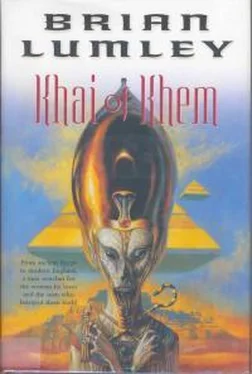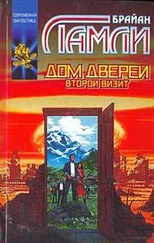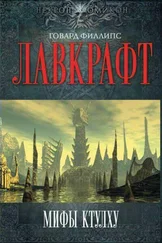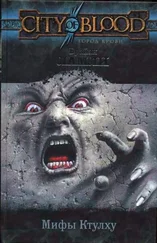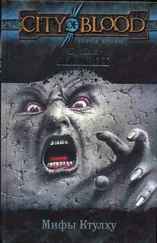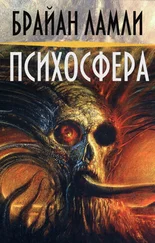Sitting by his bedside, Old Mellina had awakened from an uneasy sleep some time after the midnight hour. She found the house empty and the door standing open. Leaving only a spattering of scarlet droplets to mark his trail, Adhan had gone out into the night. Mellina went into the dark streets after him, but she could not find him.
Indeed, Adhan’s whereabouts were not discovered until mid-morning, when a messenger from the pyramid went to the house of Imthod Haphenid to bring the architect to Anulep. Haphenid was to be promoted to Harsin Ben Ibizin’s former position, and Anulep was to present him with Khasathut’s royal seal, proclaiming him Grand Architect of the Pyramid. Ah, but this was not to be! The messenger found Haphenid, most certainly, but he also found Adhan Ibizin.
By then Adhan was dead, seated stiffly in a chair in Haphenid’s study, but the grim smile on his chalky face told of a revenge which had been grisly as it was sweet. Then, in a state of shock, Anulep’s messenger stumbled about the house, and wherever he went he was met with pieces of the man he had come to find.
The traitor’s hands were in the kitchen; nevermore would he use them to sabotage the plans of a better man. His tongue lay on the tiled floor of the hall; it would not lie again to gain Pharaoh’s favor. His eyes were blindly staring nubs of jelly set neatly upon a small table in his bedroom; and they never again would glint green with envy at the marvelous works of a true master. As for his bloodless corpse: only the white feet of that stuck up from the seat in the tiny privy; and his blood filled the stone bowl in which Adhan’s corpse bathed its feet!
Wondering how best to tell Khai all of this (a story which by now was the talk and terror of all Asorbes), Gomba slowed his pace as he drew closer to his house. Had there been observers to see him, they might well have wondered at the way his steps grew shorter with the lengthening of his face.
They might also have noted a slight bulge beneath his tatters which told of something concealed there: Khai’s bow and quiver of arrows, cannily “lifted” from the now-deserted home of the once proud and flourishing Ibizins. When Khai fled the city, he would not go unarmed; Gomba had ensured that his favorite weapon would go with him. The huge black had a knife for him, too, but that was already hidden away. The penalty was death for any slave caught handling weapons, even a “king” of slaves, and Gomba risked his life in doing what he did for Khai.
There were no observers, however, only a handful of skinny, ragged urchins too young to be put to work. Except for these, the filthy streets were deserted, and Gomba’s movements attracted no eyes other than those of a pair of furtive rats that chewed on some nameless morsel in the shadow of a crumbling wall. Kicking a pebble in the direction of the vermin, Gomba cursed himself for a fool that he was risking his neck this way—but then again, perhaps not. The boy’s father had been good to him … and who could say? Perhaps the lad really would come back one day to send Pharaoh to hell.
The Nubian shuddered as he recalled the words of Aysha the witch-woman. He had left her hovel only a few short minutes ago and remembered her words most clearly:
“You have taken into your care a great redeemer,” she had told him. “A righter of wrongs, a general, a killer! Ah, he is a rare one. Blond of hair and blue of eyes—a queer fish’ And in caring for him you do well, Adonda Gomba, for he will free you in the end. He will free all of us, who have lived our lives as slaves! Mark well my words.…” And Gomba had marked them, for there was no way at all that Aysha could possibly have learned of his charge, except by that strange sixth sense of hers which told her far more than any pair of keen eyes ever could!
Old Aysha, yes. Blind and yet all-seeing. Black as old leather and yet bright as a new day. In Nubia she would be a N’ganga of great power. Here in Asorbes … she was lucky to be still alive. Ancient, withered, of no earthly use—but the slaves fed and protected her. Hers was the magic of the olden days, and her blind eyes invariably foresaw Pharaoh’s downfall—which in itself was reason enough to keep her alive and well.
But now the picture of the witch-woman faded in Gomba’s mind’s eye as quickly as it had come. Despite his hesitancy, he now found himself at the door of his house. For a moment, he frowned, sighing deeply. Then a sterner look replaced the uncertainty on his face and his shoulders straightened. Life was hard enough without the addition of useless daydreams. He drew the hide that guarded the doorway to one side, stooped and stepped through into the cool gloom beyond.
“Khai,” he barked, his voice rough and sharp-edged. “Hey, boy, wake up! There are things I have to tell you.”
With Adonda Gomba’s return, Khai began yet another day and night of terror. It started with the Nubian’s story of Adhan’s revenge which, while initially it left Khai pale, shaken and sick at heart, at the last filled him with a passionate pride and strengthened his already iron resolve: to follow in his brother’s footsteps and seek vengeance, even on Pharaoh himself, no matter how long that might take. The terror only began with Gomba’s story, however, for no sooner was the tale of Adhan’s grisly revenge told than the Nubian received warning from one of his slave subjects—a crippled, one-armed Syran he used as a runner—that a certain captain of Khasathut’s Corps of Intelligence, his secret police, was on his way to see him with a squad of bully-boys who were specialists in the twin arts of interrogation and torture.
Even the big black paled on receipt of this news, and he inwardly cursed himself for ever befriending Khai in the first place; but his plans were already too far gone for alterations, regrets or recriminations. To turn Khai in at this late hour would plainly be to disclose his own part in the boy’s disappearance, which in turn would mean the end of Adonda Gomba. Before letting the crippled runner go, Gomba took Khai’s knife from where he had hidden it and bundled it up with his bow, then tied the bundle to the man’s side under his clothes. Finally, he gave the frightened Syran rapid instructions and ordered him on his way. When the man had gone, Gomba turned to Khai and explained:
“He will see to it that your weapons are smuggled out of the city and given to Mhyna.”
“Mhyna?”
“You’ll meet Mhyna soon enough, Khai, but right now we must get you hidden away.”
He gave the boy a piece of dried meat, a large wedge of bread and a cup of water, then pried up a massive slab of stone from those surrounding it in the floor of his kitchen. In doing so, he revealed a shallow trench beneath which had once been part of the city’s sewage system. Passing directly beneath Gomba’s house, the hiding place was at once ideally and very dangerously situated. Ideal in that Khai could be hidden away without his leaving Gomba’s dwelling in broad daylight, and dangerous in that if he should be discovered there, then the game would be well and truly up, not only for Khai but most certainly and conclusively for Adonda Gomba.
While no sewage had passed through this dried up bowel of a channel for many years, still the stench which instantly billowed out on removal of the slab was that of a charnel house. Gomba saw the way Khai was almost bowled over by the smell and remarked: “You’ll get used to it soon enough, boy. The stink of a few dead rats can’t harm you. It’s the live ones who’ll soon be visiting me that we have to worry about!” Then he had helped Khai to get down into the hole, somehow replaced the slab and covered the floor with the layer of dirt and dust which had previously been there. But if Khai had fancied that his hiding place would be as dark, lifeless, airless and silent as the tomb itself, then he had been wrong on all counts.
Читать дальше
